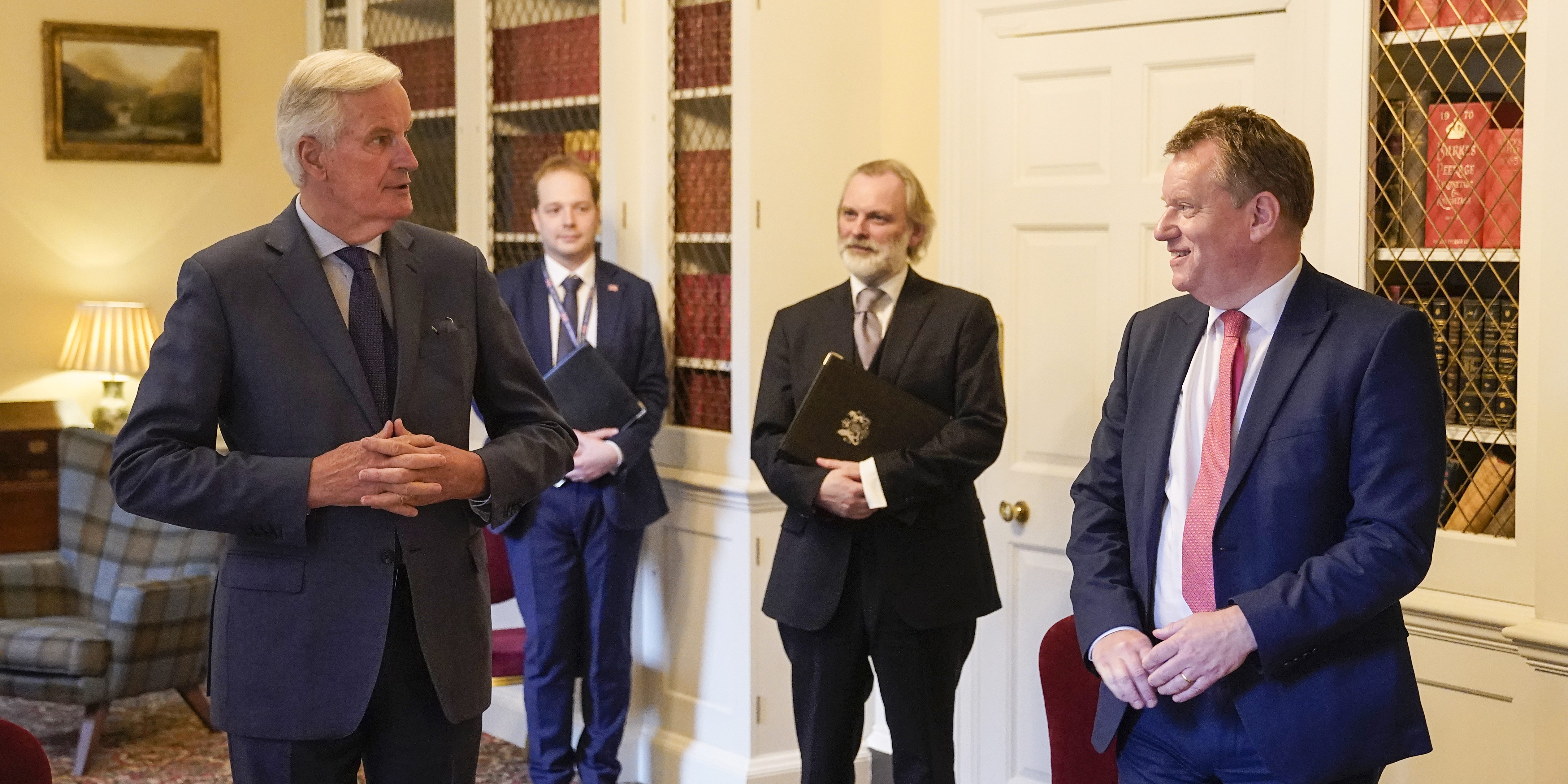 Despite the fact that most parliamentarians, business leaders and even Brexiters themselves don’t want it, Anand Menon argues we are heading for a hard Brexit – thanks both to the relatively good performance of the economy, the intransigence of public opinion about migration and the fact EU leaders want to deter populist movements.
Despite the fact that most parliamentarians, business leaders and even Brexiters themselves don’t want it, Anand Menon argues we are heading for a hard Brexit – thanks both to the relatively good performance of the economy, the intransigence of public opinion about migration and the fact EU leaders want to deter populist movements.
What sort of Brexit might the government be able to negotiate? The term hard Brexit is used ubiquitously, but defined infrequently. It is generally defined in terms of the relationship the UK will have with the EU’s single market.
A soft Brexit is commonly taken to mean continued membership of that market. The hardest hard Brexit implies the UK having no preferential relationship with the single market and relying only on World Trade Organisation (WTO) rules. This implies not merely non-membership of the single market (meaning the potential for non-tariff barriers to be adopted) but also the imposition of tariffs on at least some trade in goods between the UK and the EU.
Following the aggressive rhetoric at the Tory party conference, many fear that the government has set course for the hard side of the spectrum. Yet this is assuming too much.
No one – including, I suspect, Theresa May – has yet decided what they want. All that being said, however, structural factors provide some clues as to where we are headed, as I explored in an article I recently co-wrote with Brigid Fowler for NIESR’s November Review. And the nature of politics both here and in continental Europe means that, whatever individual leaders may prefer, Brexit is most likely to be hard.

Strikingly, public opinion has remained remarkably receptive to key messages of the Leave campaign. In his August polling, Lord Ashcroft found 81 per cent of respondents felt that paying into the EU budget was incompatible with Brexit.
Migration was of course another key issue. Despite recent – and unconvincing – attempts by so-called liberal leavers to argue that immigration was not a key reason behind the vote to leave, the polling shows otherwise. Almost 90 per cent of those who think immigration is bad for the economy voted to leave. Already, a number of Labour MPs, citing “experience on the doorstep”, have declared there is a need to limit free movement and reduce the number of migrants coming to the UK. The rhetoric from Birmingham will hardly serve to dampen such tendencies.
Moreover, the fact that the economy has performed relatively well since the referendum has hardened opinion amongst those who believe Brexit will make the UK better off – rising by about six points to 28 per cent. Certainly, a recession would reduce the likelihood of a hard Brexit. Yet it may be that any negative economic impact of a hard Brexit would come only after it takes place. Thus, the economic case against leaving the single market may lack credible evidence early enough to shift the mood.
So, in order to avoid a hard Brexit, Britain needs some sort of deal that combines market membership with an ability to respond to the abiding concerns of public opinion. Precedent does not offer many grounds for optimism. To date, market membership for non-EU states can be secured only through membership of the European Economic Area (EEA). While enjoying membership of the single market, non-EU EEA states also accept the constituent four freedoms, including freedom of movement. Non-EU states in the EEA also contribute financially towards EU support for less developed EU states and regions.
What chance, then, of our partners making an exception for Britain? Frankly, not much. This is not because there is no functional reason to do so. Whilst the claim that they need us more than we need them is dubious at best, it remains the case that the abrupt rupture a hard Brexit would represent would cause economic damage on both sides of the Channel.
Yet there is politics in Europe too. And any long term deal signed between the UK and EU will run headlong into this politics, as it will require parliamentary ratification in all member states. This, of course, means not only national but sometimes regional parliaments, a total of 38 votes. Let’s not forget the Wallonian parliament came close to scuppering the EU’s hard fought trade deal with Canada. A special deal for Britain which, say, gave us market access whilst restricting the ability of other Europeans to come and work here would not be an easy sell before the Polish parliament (amongst others). Nor would it obviously be acceptable to west European leaders anxious to persuade their publics of the benefits of full EU membership in the face of sometimes serious populist challengers.
It’s the politics, stupid. For all that the idea of a hard Brexit has galvanised cross-party resistance in the House of Commons; for all that it has caused consternation amongst senior business leaders; for all that many liberal Brexiters condemn the idea, the politics means that hard Brexit is probably where we will end up.
This post represents the views of the author and not those of the Brexit blog, nor the LSE. It was first published by the NIESR.
Anand Menon is director of UK in a Changing Europe and professor of European politics and foreign affairs at King’s College London.







a. Article 50 can contain whatever the negotiators agree about the UK’s future framework of relationships with the EU.
b. I agree that it’s possible that EU politics will cause a harder Brexit than would be economically optimal. But since we run a massive trade deficit with the (rest of the) EU the short term impact of reductions in trade, esp in trade in goods, would be positive for UK GDP.
c. In the medium term the UK is uniquely well-placed to be the global bridge between America, Europe, Asia, Africa and Australia. This is far more important than trade with the deeply dysfunctional EU which is an ever-shrinking fraction of the global economy.
Why not simply offer to negotiate an FTA, even (perhaps) to come into force on Brexit day? The NAFTA took 14 months to negotiate, the EU-Georgia DCFTA took 17 months, the early FTAs between the EEC and the EFTA states took 7 months. There’s no mystical law that they have to take 5 years.
The EU might well say no, we can’t do that, you have to wait until you have left, but we could come back and say why so? Does it make any sense to revert to tariffs (for example) for a couple of years, and then back to zero tariffs again? We would have the better of that argument, it seems to me.
Andrew